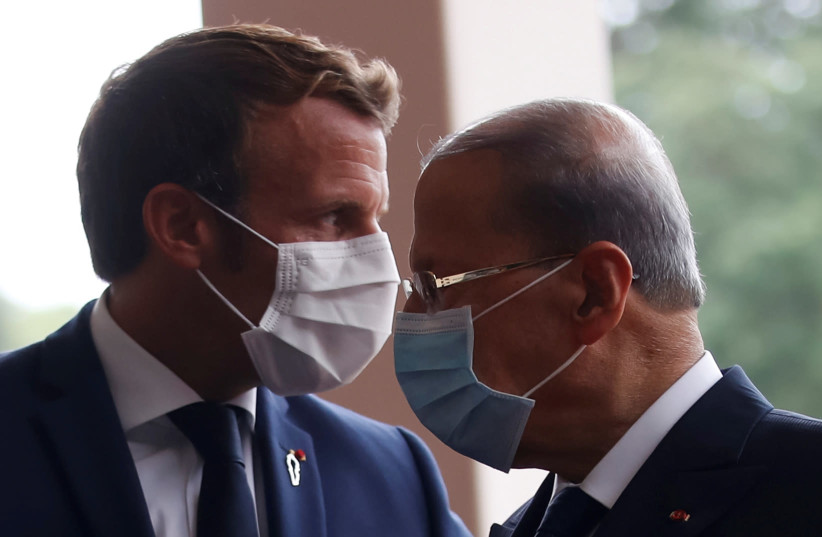France had wanted to reduce the sectarian nature of the government, but Hezbollah has increased its clout in recent years.
SETH J. FRANTZMAN

A month and a half after a massive explosion in Beirut caused a crisis in Lebanon that saw the government fall, France’s decision to try to push for reforms may have been defeated.
Regional media from the UAE to Turkey are focused on what might come next in Lebanon. Lebanon’s Prime Minister designate Mustapha Adib resigned, according to Anadolu. French President Emmanuel Macron will hold a news conference on Sunday to discuss the situation.
Lebanese analysts quoted at Al-Ain said that Lebanon could be heading to “chaos” as Hezbollah and the Amal movement prevented the creation of a new government. France has sought to mediate in Lebanon, with France’s President Macron playing a key role. This even included meetings with Hezbollah’s members of Lebanon’s parliament. Now the political parties and entrenched sectarian elites in Lebanon appear to have sought to frustrate France’s attempts at reform.
It appears that Hezbollah and Amal had sought to obtain the finance ministry as part of the reform. This would put Iran at the helm of Lebanon’s key ministry. Lebanon already needs $93 billion to bail it out of a financial crisis. Iran has used Lebanon for money laundering and other fraudulent transactions in the past.
France had wanted to reduce the sectarian nature of the government, but in Lebanon many ministries are divided as spoils for various groups. Hezbollah has increased its clout in recent years, even though it has only a handful of members of parliament. It has sought to grab the health ministry and other posts.
It also has an ally in Lebanon’s President, Michel Aoun. The President of Lebanon is a Christian and the Prime Minister a Sunni under the agreement that governments Lebanon as a sectarian state. This agreement dates back decades and was also enshrined in the Taif accords that ended the civil war and empowered the Sunni prime minister with Saudi backing. But Saudi Arabia has lost influence in Lebanon in the last few years, and Iran and Turkey are now trying to increase their influence and hold.
This is why media in the UAE is concerned about chaos in the country. Chaos feeds Iran’s role. Anadolu in Turkey noted that Adib had given up in the face of failure to form a government.
cnxps.cmd.push(function () { cnxps({ playerId: ’36af7c51-0caf-4741-9824-2c941fc6c17b’ }).render(‘4c4d856e0e6f4e3d808bbc1715e132f6’); });
“I excuse myself from continuing the task of forming the government,” Adib said.
Adib, a former ambassador to Germany, had agreed at the end of August with the task of forming a new government after his predecessor Hassan Diab resigned.
Saad Hariri said “Those rejoicing for the fall of the French President Emmanuel Macron’s initiative will bite their fingers in regret for wasting an exceptional opportunity to stop economic collapse and initiate reforms.”
Hariri is a former prime minister and also son of Rafic Hariri, the former Prime Minister murdered by Hezbollah in 2005.
Lebanon is at a crossroads. The US has pushed for mediation on Israel-Lebanese maritime disputes. Hezbollah has sought to leverage anti-US sentiment. The US airlifted a Lebanese-American out of the country earlier this year and Hezbollah has slammed the US ambassador for interference in the country. Hezbollah has suggested China could invest in Lebanon.
France has now sought to play a larger role. France is the former colonial power. The US sanctioned former finance minister Ali Hassan Khalil, who is a member of Amal, in early September. This appears to have also played a role in the impasse. In some ways the current dispute over Lebanon could be seen as a quest for influence between Iran, the US, Turkey and France.
Content retrieved from: https://www.jpost.com/middle-east/has-hezbollah-defeated-france-in-lebanon-643696.